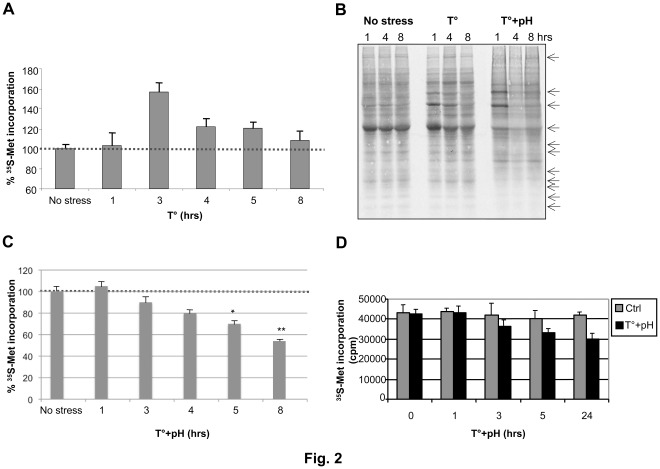Figure 2. The effect of temperature and acidic pH stress on the de novo protein synthesis in Leishmania.
(A) Levels of [35S]-methionine incorporation (as an indicative of general translation rates) in L. infantum promastigotes subjected from 1 to 8 hours to either an elevated temperature (37°C) stress (A) or to a combined temperature and low pH (pH 5.5) stress (C). Thirty minutes before protein sample collection, 1 µCi/ml [35S]-methionine protein labeling mix was added to the culture media lacking methionine. Protein synthesis was measured as the incorporated radioactivity by a scintillation counter and expressed as cpm. Results are the mean of a minimum of six independent experiments. (B) [35S]-Met-labeled proteins resolved on 10% SDS-PAGE. Cells grown at 25°C/pH 7.3 (no stress) or exposed to elevated temperature (37°C) (T°) only or to a combined temperature and acidic pH (pH 5.5) stress for 1, 4 and 8 hours were labelled with [35S]-Met for 30 min. An autoradiograph of the SDS-PAGE analysis is shown here. Examples of upregulated or downregulated proteins under stress are indicated by arrows. (D) Pulse-chase assay to assess the stability of L. infantum proteins under stress. L. infantum promastigotes were incubated in a methionine-deprived medium supplemented with [35S]-Met for 1 hour at 25°C and then transferred to a non-radioactive methionine-containing medium at 37°C and pH 5.5 and grown for 24 hours. Aliquots were taken at 1, 3, 5 and 24 hours and the radioactivity (in cpm) was measured by a scintillation counter. A decrease in cpm numbers corresponds to protein degradation under stress. Results are the mean of three independent experiments. Significant differences between the various conditions in (C) are indicated (* p<0.05 and **p<0.01) using one-way ANOVA followed by the Tukey-Kramer test.

